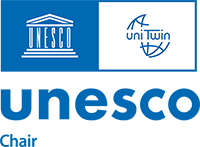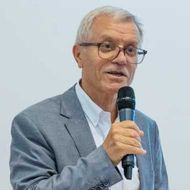- A
- A
- A
- ABC
- ABC
- ABC
- А
- А
- А
- А
- А
- HSE University
- UNESCO Chair on Future Studies
- News
- ‘The World Is Becoming More Complex and Less Predictable’: What Scientists Say about the Future
-
-
Education
-
Science
11 Myasnitskaya St., Moscow
+7 (495) 621-28-73
issek@hse.ru
Meissner D., Zhou Y., Fischer B. et al.
Technological Forecasting and Social Change. 2022. Vol. 178.
Abdrakhmanova G., Vasilkovsky S., Vishnevskiy K. et al.
M.: National Research University Higher School of Economics, 2022.
Saritas O., Burmaoglu S., Ozdemir D.
Futures. 2022. Vol. 137.
Sokolov A., Shashnov S. A., Kotsemir M. N.
In bk.: BRICS Comprehensive Innovation Competitiveness Report 2020. Scientific and technical documentation press, 2021. P. 36-98.

‘The World Is Becoming More Complex and Less Predictable’: What Scientists Say about the Future

The future is now more difficult for researchers to forecast, and events that are hard to predict are playing an increasingly significant role. But there is good news too: scientists are confident that humanity will adapt to any changes. This was the focus of discussion at the International Symposium ‘Foresight in a Rapidly Changing World,’ which took place as part of the 25th Yasin (April) International Academic Conference.
Rapid technological progress, alarming climate change, accelerated digitalisation, rising inflation, and stagflation are all contributing to serious transformations. ‘The world is becoming more complex and less predictable,’ noted Yulia Milshina, Deputy Director of the International Research and Educational Foresight Centre at the Institute for Statistical Studies and Economics of Knowledge (ISSEK), HSE University. According to her, rapid changes are causing anxiety and depression among the population. Some researchers link this to the development of digital technologies and a growing sense of insecurity.

Yulia Milshina
‘The digital transformation of education and labour systems is failing to keep pace with current demands, creating a mismatch between human capital and market requirements,’ said Yulia Milshina. Demographic statistics are also a cause for concern. ‘The ageing of the population, as opposed to its size, poses a threat to pension systems and healthcare in developed countries,’ she added.
At the same time, there has recently been an exponential rise in the number of academic publications dedicated to so-called ‘wild cards’—random factors. These are unpredictable events that may prove to be critically important. An early warning system for such events is vital in developing strategies to mitigate the negative consequences of their occurrence, Yulia Milshina explained. While there were over 50 such events recorded in 2022, this number rose to more than 300 by 2025.
The global financial crisis served as a wake-up call that pushed the research community to take low-probability, high-impact events more seriously, she emphasised. Unpredictability makes traditional forecasting difficult. ‘Despite increased awareness, we remain vulnerable to unforeseen circumstances,’ the expert noted. A new societal landscape demands integrated strategies capable of adapting to rapid development. That is why more advanced tools are being developed—tools that ‘enable us to anticipate, absorb, and adapt to such disruptive changes.’
Alena Nefedova, Leading Research Fellow at the HSE ISSEK Laboratory for Economics of Innovation, spoke about iFORA—an intelligent platform for big data and megatrend analysis developed by ISSEK at HSE University.
Among the megatrends that will shape the future, Alena Nefedova highlighted climate change, increased attention to physical, psychological, and emotional wellbeing, the transformation of the education system, and global shifts in the labour market. At the same time, she stressed that within science itself, the development of interdisciplinary research is becoming increasingly important.

Alena Nefedova
‘Universities began conducting interdisciplinary research as far back as the mid-20th century, in collaboration with industry. By the 1970s, interdisciplinarity was recognised as vital for strengthening universities as key players in innovation ecosystems,’ noted Alena Nefedova. She also emphasised the growing influence of digitalisation on scientific activity. ‘We now have virtual forums, virtual laboratories, international projects, and the open science movement—all of which support the sharing of scientific data and findings,’ she added.
Fabienne Goux-Baudiment from the proGective research laboratory (France) noted that the world has changed dramatically. ‘One of the catalysts for these changes has been carbon. We can see that the large-scale use of carbon leads to global warming and climate change. Another catalyst is silicon. Thanks to silicon, we now have generative artificial intelligence—and it is capable of competing with humans,’ she said. And finally, according to Ms Goux-Baudiment, the third major trend we are currently witnessing is widespread chaos. This is particularly evident in the economy and geopolitics. But change, she reassured, is ‘not some anomaly—it is a natural part of human evolution and of life itself.’ Society is evolving, and technology is accelerating that evolution. We may, she believes, ‘make a quantum leap into an entirely new state.’ ‘One world is essentially fading away, and—albeit not instantly—a new world is emerging,’ she said. However, since we often resist change, this process is slowed down. Nevertheless, we are still entering an era of acceleration.
The world will no longer be as we know it today, but this transition does not spell the end of humanity, the futurist said. ‘First of all, this is not the first time humanity has faced large-scale change. Secondly, human beings are generally quick to adapt. And thirdly, this time we know what is happening. We are aware of it. That means we can take action,’ she reassured.
In her view, a new mindset is beginning to take shape. ‘More and more people are recognising that the way we think, govern, and produce no longer matches the demands of the time. This is not just a subtle shift. The younger generation is not just asking what they want to do—they are thinking about what kind of world they want to create together with like-minded people. Pessimism is not the answer. We must experiment and create new formats,’ Fabienne Goux-Baudiment concluded.
The International Symposium ‘Foresight in a Rapidly Changing World’ took place at HSE University on April 17–18, 2025.
- About
- About
- Key Figures & Facts
- Sustainability at HSE University
- Faculties & Departments
- International Partnerships
- Faculty & Staff
- HSE Buildings
- Public Enquiries
- Studies
- Admissions
- Programme Catalogue
- Undergraduate
- Graduate
- Exchange Programmes
- Summer Schools
- Semester in Moscow
- Business Internship
-
https://elearning.hse.ru/en/mooc/
Massive Open Online Courses
-
https://www.hse.ru/en/visual/
HSE Site for the Visually Impaired
-
http://5top100.com/
Russian Academic Excellence Project 5-100
- © HSE University 1993–2025 Contacts Copyright Privacy Policy Site Map
- Edit

